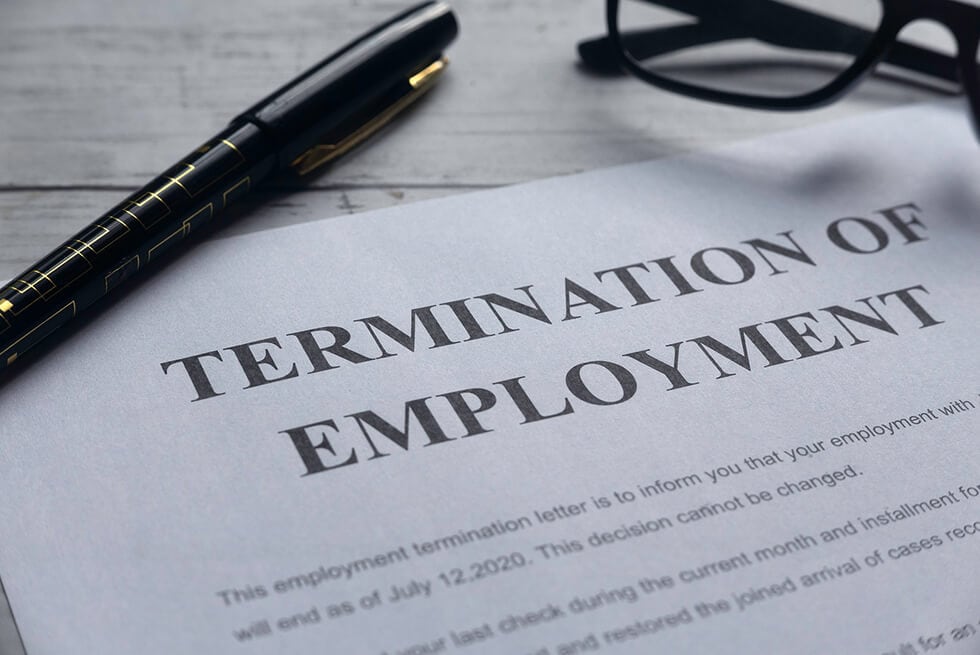After pouring time, energy and talent into your work, it’s frustrating to be fired from your job without warning and without explanation. But Georgia and Alabama are at-will employment states, meaning employers may fire employees at any time and for any reason, provided they have not violated any laws that would make the termination illegal.
But what about when the firing is not legal? What should you do when you get fired unfairly? What is wrongful termination? And what exactly does it mean to be fired illegally?
What is wrongful termination?
While employers can freely take advantage of at-will employment, they are subject to federal and state anti-discrimination laws, whistleblower laws and the terms of written or oral contracts.
Although there is no claim specific to “wrongful termination,” employees can file a claim specific to whatever law their employer violated and may be able to collect damages or get reinstated. Potential claims might include one or more of the following:
- Contractual promises:If you have a contract guaranteeing employment for a period of time, you may be able to argue that your employment was not at-will, despite your state’s laws. Oral agreements—like promises of long-term employment—sometimes count as well, though they’re much harder to support.
- Discrimination: It is illegal for an employer to fire you because of your race, color, religion, sex, national origin, age, disability or genetic information. Depending on the kind of discrimination you have experienced, you may need to file a charge with the Equal Employment Opportunity Commission (EEOC).
- Retaliation: If you’re injured at work and file a workers’ compensation claim, then it may be illegal to fire you simply for pursuing that claim, depending on the state. Worker’s comp retaliation is illegal in Alabama, and though Georgia does not have similar prohibitions, there could be other protections for injured workers under the Americans with Disabilities Act (ADA) or the Family Medical Leave Act (FMLA).
- Whistleblowing: Depending on the law a whistleblower alleges their employer violated, being fired for whistleblowing may also be illegal. For example, whistleblowing about ethical issues may not be protected, but whistleblowing for participating in an EEOC investigation most definitely is protected.
- Other violations: it is illegal for an employer to fire you for missing work for jury duty, taking leave to serve in the National Guard or attempting to make schedule modifications in order to vote.
- Engaging in concerted activity: It is illegal for an employer to fire you for trying to improve working conditions or discussing pay with coworkers, even if you’re not part of a union.
- Genetic information: The Genetic Information Nondiscrimination Act makes it illegal to terminate on the basis of genetic testing or your family medical history, like a heightened risk of cancer.
When it’s wrongful termination but not illegal
While it might seem unfair, an employer can fire you without reason and may even refuse to offer a reason for your termination, even if you ask. In fact, many employers will stick to a simple script in a dismissal meeting and decline to answer any questions.
Often, companies create a paper trail leading up to a termination, documenting meetings about poor performance reviews or offering training to an employee who is struggling. For employees without a strong underlying legal claim, though, sometimes accepting a severance package is the best path forward.
When do you need a lawyer?
If you believe you were fired illegally, document the circumstances of your dismissal, take notes, save performance reviews and contracts, and review emails. Illegal termination claims have a high burden of proof, so you’ll want to have as much supporting evidence as possible.
Next, speak to an employment attorney about your situation. Any dismissal can be painful, but it’s especially hard when you’ve been illegally fired. At Barrett & Farahany, we are happy to answer your questions. Please contact us to speak to one of our attorneys.


